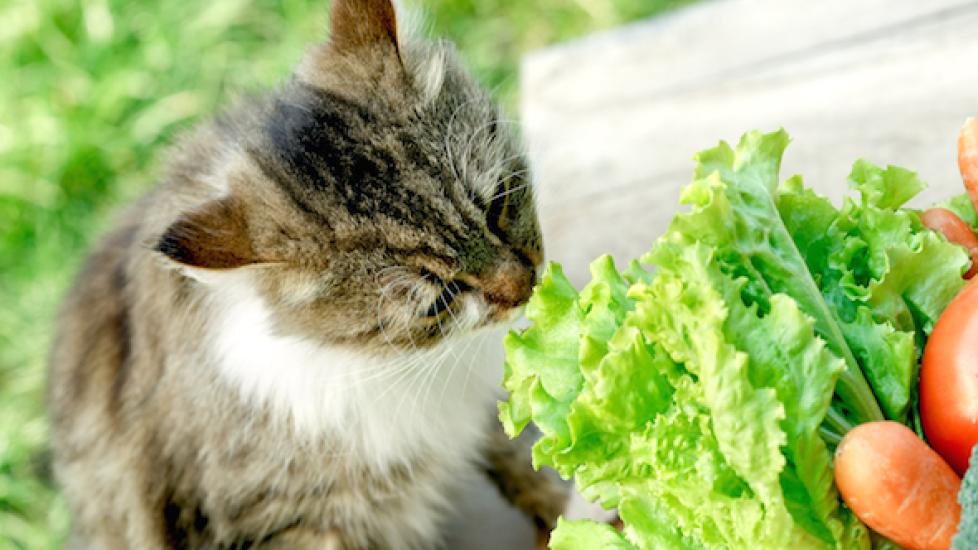Do Carrots Naturally Improve Your Cat's Vision?
Can Eating Carrots Improve Eyesight?
By Jennifer Kvamme, DVM
Nearly everyone is familiar with the old adage that eating carrots can improve vision. So, the idea must apply to our cats as well … right? While there is some hint of truth to the concept, eating lots of carrots will not give your cat — or you for that matter — super vision during the day or night.
Carrots are indeed a nutrient-rich source of a variety of vitamins and minerals, including beta-carotene. Beta-carotene is actually a pigment that gives the signature orange (or sometimes yellow or red) color to carrots and other vegetables. It is the beginning form of vitamin A (called retinal) that is necessary to maintain good vision — especially in dim light.
How does Beta-Carotene Help?
When an animal eats foods containing beta-carotene, it is absorbed by the intestine and transported to the liver. There it is combined with fats in the diet, converted to vitamin A, and stored until needed by the body. Cats are a bit different from other animals in that their ability to convert beta-carotene to vitamin A is extremely limited. Because of this, cats must be fed a form of vitamin A that is available for the body to use immediately.
When stores of vitamin A in the body are reduced, vitamin A is released through the bloodstream, by which it travels to the retina of the eye, which is critical for normal eyesight. Made up of millions of cells called rods and cones, the retina can be found in the back of the eyeball. These cells are sensitive to light and tell the brain (via the optic nerve) what is being seen.
The rods are most important in low-light situations, and the rods are sensitive to low levels of vitamin A in the body. So, if an animal has a deficiency of vitamin A, eating more foods that contain it could help improve eyesight, especially at night.
Beta-Carotene/Vitamin A in the Diet
Because of the cat’s limited ability to convert beta-carotene to vitamin A, carrots are typically not a major source of this important nutrient in your cat’s diet. Vitamin A is usually created synthetically and added to cat food to make sure adequate levels are being provided for in the cat's daily nutrition.
There is such a thing as having too much vitamin A in the diet. Cats that have too much in their diet (hypervitaminosis) can develop bone problems and muscle weakness. Thankfully, vitamin A toxicity would require a very high dose for a long period of time, and giving your cat a few bits of carrot now and again isn’t going to come close to providing an overdose.
While feeding your cat carrots occasionally or buying cat foods that contain good levels of vitamin A can provide health benefits, there is not much chance of your cat's eyesight becoming even better than before. There is also little chance of diminished eyesight caused by injury, cataracts, glaucoma, etc., being improved by vitamin A supplementation after the fact. However, it has been shown to prevent cataracts and other eye diseases.
Sources
Chew BP, Park JS, Wong TS, Kim HW, Weng BB, Byrne KM, Hayek MG, Reinhart GA. "Dietary beta-carotene stimulates cell-mediated and humoral immune response in dogs." Journal of Nutrition Aug. 2000: 130(8);1910-3.
Karutz, M. "Stable β-carotene Formulation for Petfood." Petfood Supplement, Issue 10.
Image: Shutterstock
